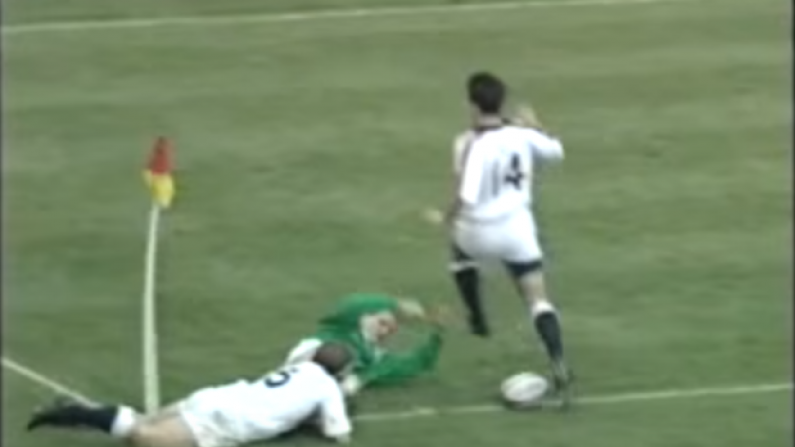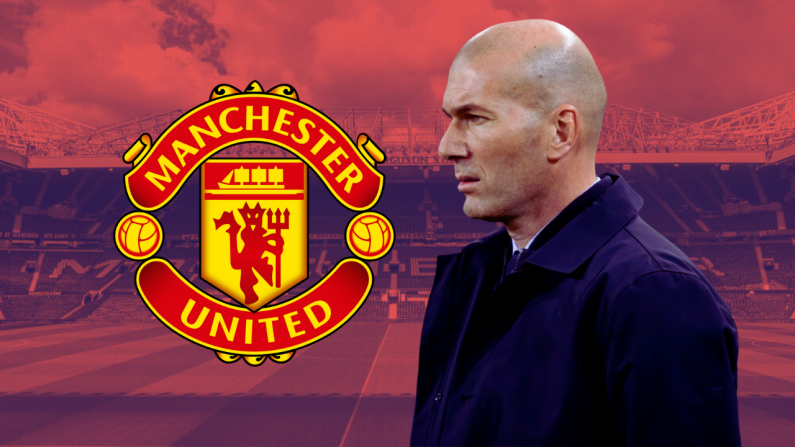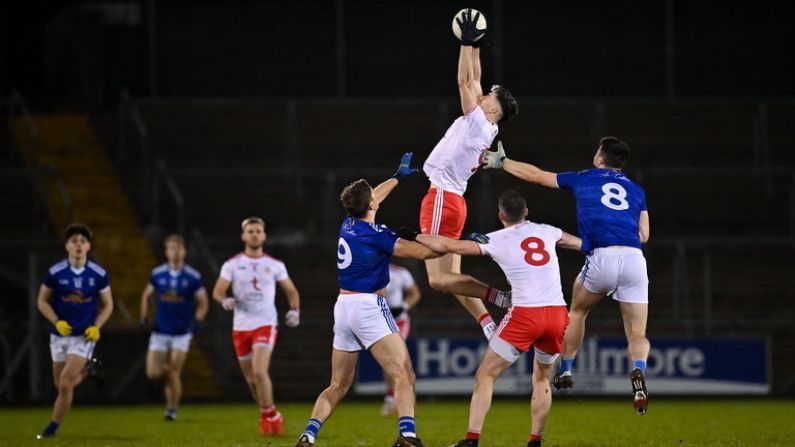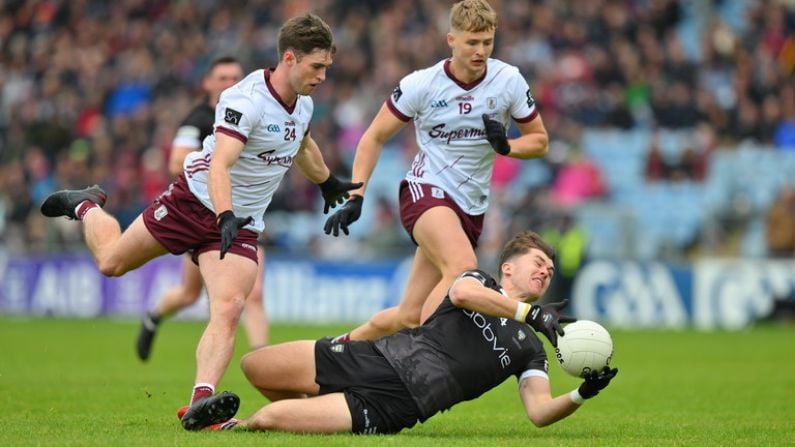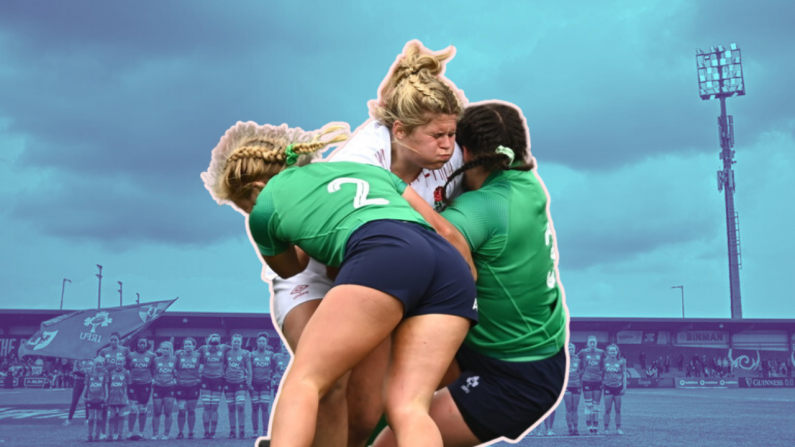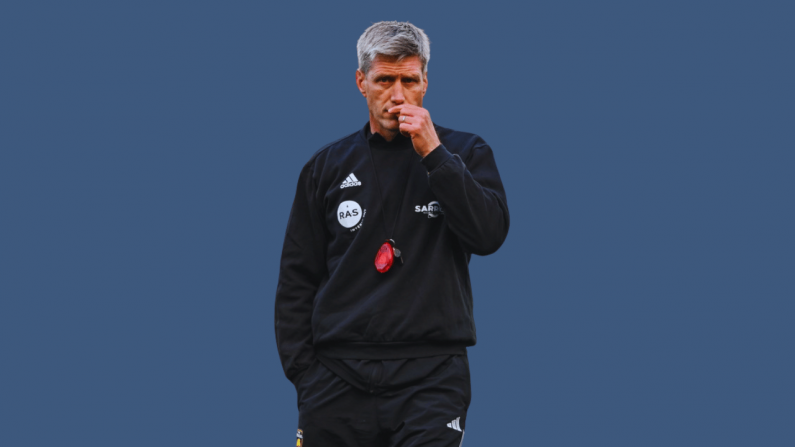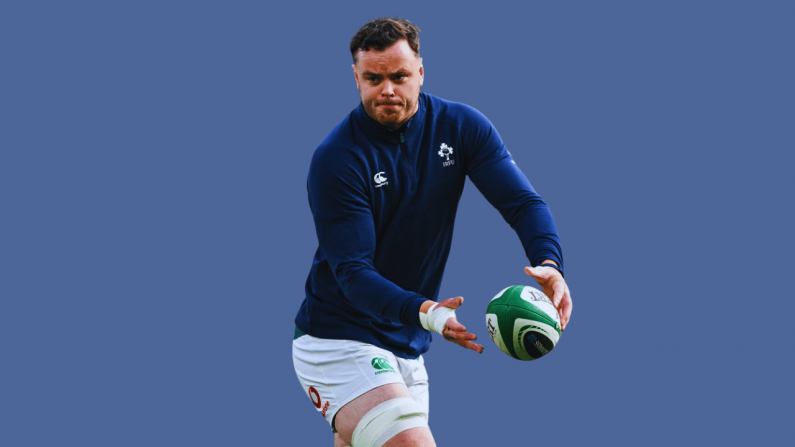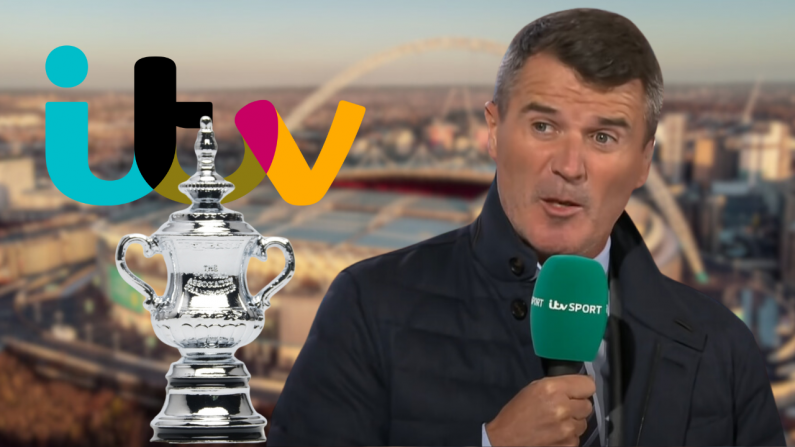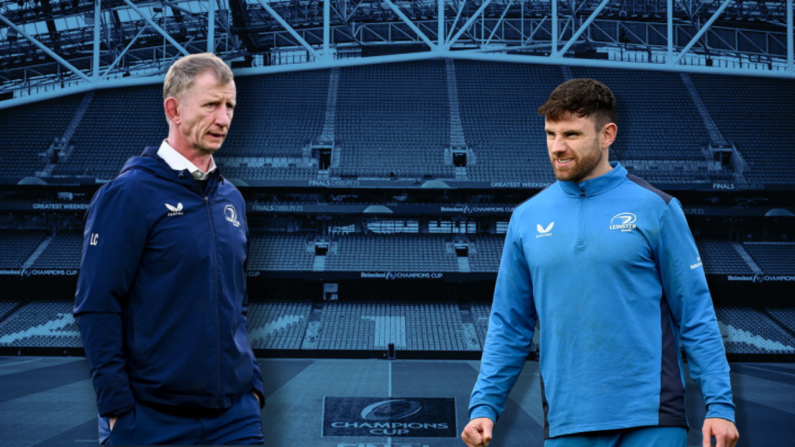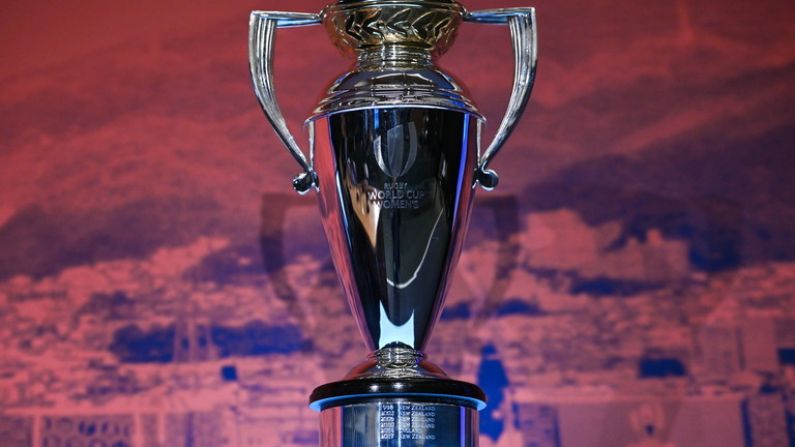Simon Geoghegan famously didn't receive a pass in an attacking position in the 1992 Five Nations. Working the ball through the backs as far as the wing was considered an excessively ambitious strategy by Irish teams in those days.
You can listen to the Galwey interview in full on our daily sports podcast, The Racket:
After Ireland's miserable loss in Murrayfield in the 1993 opener, he threw his shirt to the ground in disgust in the dressing room. When Noel 'Noisy' Murphy tried to gee the players by asserting that he had seen plenty of positives out there, Geoghegan demanded that he specify them. 'Name them, name them!' he said angrily.
He played for Ireland during the bleakest of eras, from 1991 to 1996. He played 35 games for Ireland, winning just 12 of them, a figure which includes victories over Zimbabwe, Japan, USA (x2), Romania, and Fiji. He was forced to retire at 28 with toe problems.
And yet he is one of the most heavily mythologised players in Irish rugby history, frequently selected on Irish all-time XV's. He is invariably the only player from that era to be selected.
One could call it the Sergio Parisse syndrome. With the deaths in recent years of Nelson Mandela and David Bowie, Sergio Parisse now stands alone as the most universally praised human being on the planet.
The fact that most of his greatest displays go unrewarded by victory adds to the romantic mystique of the man, giving him the irresistible air of a heroic martyr.
Likewise with Simon Geoghegan. Those who began following the Irish rugby team in the benighted 1990s still revere his very name. They often the hold him in greater reverence than the gilded names of the golden generation.
The day after Ireland won the Grand Slam in 2009, David Walsh wrote an article entitled 'Ghost of Simon Geoghegan comes alive in Cardiff'.
He wrote:
Had he (Geoghegan) turned up in Cardiff last evening, I would have said it wasn't all in vain, that the seeds didn't fall on barren ground. The pace with which he burned opponents, the passion that overwhelmed them and his love for try-scoring inspired the next generation. You ask Luke Fitzgerald about his earliest rugby memory and you will hear again about that Twickenham try of 1994.
Not only did Geoghegan screech past Underwood on the outside to score a superb try, he manufactured a (dubious) penalty in the second half after collecting the ball close to his line, spinning out of dangers and speeding up the wing. Eric Elwood slotted the penalty to make the score 13-9.
Ireland, coming off the back of an expected loss in Paris and a frustrating one at home to Wales, left with a stunning one-point win.
We spoke to Mick Galwey about the '94 game. He still meets the elusive Geoghegan at the odd international match.
We wouldn't be talking to each other regularly. But I often meet him at internationals. And it wouldn't surprise me if I bumped into him this weekend over in Twickenham. I met him last year in Dublin. He was in good form. He's a different Simon Geoghegan. He's not the blonde haired athlete that you once knew. He's put on a bit of weight but he's a different physique. He's still a great lad and he's still great fun and he loves talking about the great days he had in an Irish jersey.
The preamble to the '94 game was dominated by talk of Kyran Bracken, provocatively selected to play at scrum-half for England. Bracken had been born in Skerries, though he had left for England with his parents at a young age.
That certainly had a big part to play. I think we saw it as a fella who was born in Dublin, brought up in Dublin... We took it personally, to be honest. Everyone of the forwards to a man made it their business to catch him that day. And he eventually went off injured. Let's put it this way, if it was in the modern game, I'd say the eight of us would have been cited. But that's the way game was. Scrum halves were there to be targetted and you either lived or you died, and unfortunately he died that day. He didn't put up with the pressure he was put under.
The forwards had resolved that they were going to take Bracken out of the game. Citing commissioners were not a feature of rugby union in the amateur era. As Galwey put it in his after-dinner speech, 'there was nothing to be worried about after the game'.
He was keener than anyone to nail Bracken. He spied his chance before half-time but succeeded only re-positioning the nose of teammate Paddy Johns.
We were all trying to get him (Bracken). But I remember once that Paddy Johns had got him in possession and he had kind of twisted him. And I was coming in next and I - as you do - looked to the left to see where the referee was, and the referee wasn't looking. So, I had Kyran Bracken lined up and I connected which I thought was a beauty. But when I turned around he had ducked and I had met Paddy Johns on the nose and I actually broke Paddy Johns's nose in the process. We can laugh it at afterwards but Paddy didn't find it funny at the time. Kyran Bracken still jokes about it. But it was a bit of craic. It was just the way the game was played in those days.
This was a triumphant era in English rugby. They were an imperious outfit, albeit one often derided for conservative rugby. This accusation was frequently unfair. In 1992, they massacred everyone, setting a new record for tries in the competition. However, in 1994, they lived up to their dour reputation, failing to score a five-pointer until the final match where they denied Wales the Grand Slam.
They had beaten New Zealand the previous November and defeated France eight times in a row between 1989 and 1995 (including RWC game). They hadn't lost a Five Nations game at Twickenham in six years. Will Carling disclosed at his after-dinner yoke that it was the only game 'Five Nations-wise' that he had lost at RFU HQ.
Taken with 1993, they rank together as the most unlikely set back-to-back victories ever recorded.
Considering that Ireland have just fallen against one of the most uninspired French teams in history, it's worth pondering Ireland's record in London compared to Paris. Since 1970, Ireland have won eight times at Twickenham (72, 74, 76, 82, 94, 2004, 2006, 2010) compared to just three times in Paris (72, 2000, 2014).
What accounts for this? England's head-to-head record with France in the same period is exceptional. Is it naked tribalism?
There probably is, to be honest. I won't say we had a fear going to Paris. But we never had the same belief. We always felt, deep down, we'd have a good crack off the English if we got in among them. That was our attitude at the time. Yes, you had to be focused and you had to put your gameplan in place. But there was always a bit of madness there and if you were able to control that madness you had a chance. But you weren't going to beat them tactically, you had to get in among them.
According to Ned Van Esbeck, one English journalist described it as 'the most sensational result in the history of the Five Nations championship'. The Irish Times writer reminded him that it was in fact a back-to-back win.
[soundcloud url="https://api.soundcloud.com/tracks/248857089" params="auto_play=false&hide_related=false&show_comments=true&show_user=true&show_reposts=false&visual=true" width="100%" height="450" iframe="true" /]

